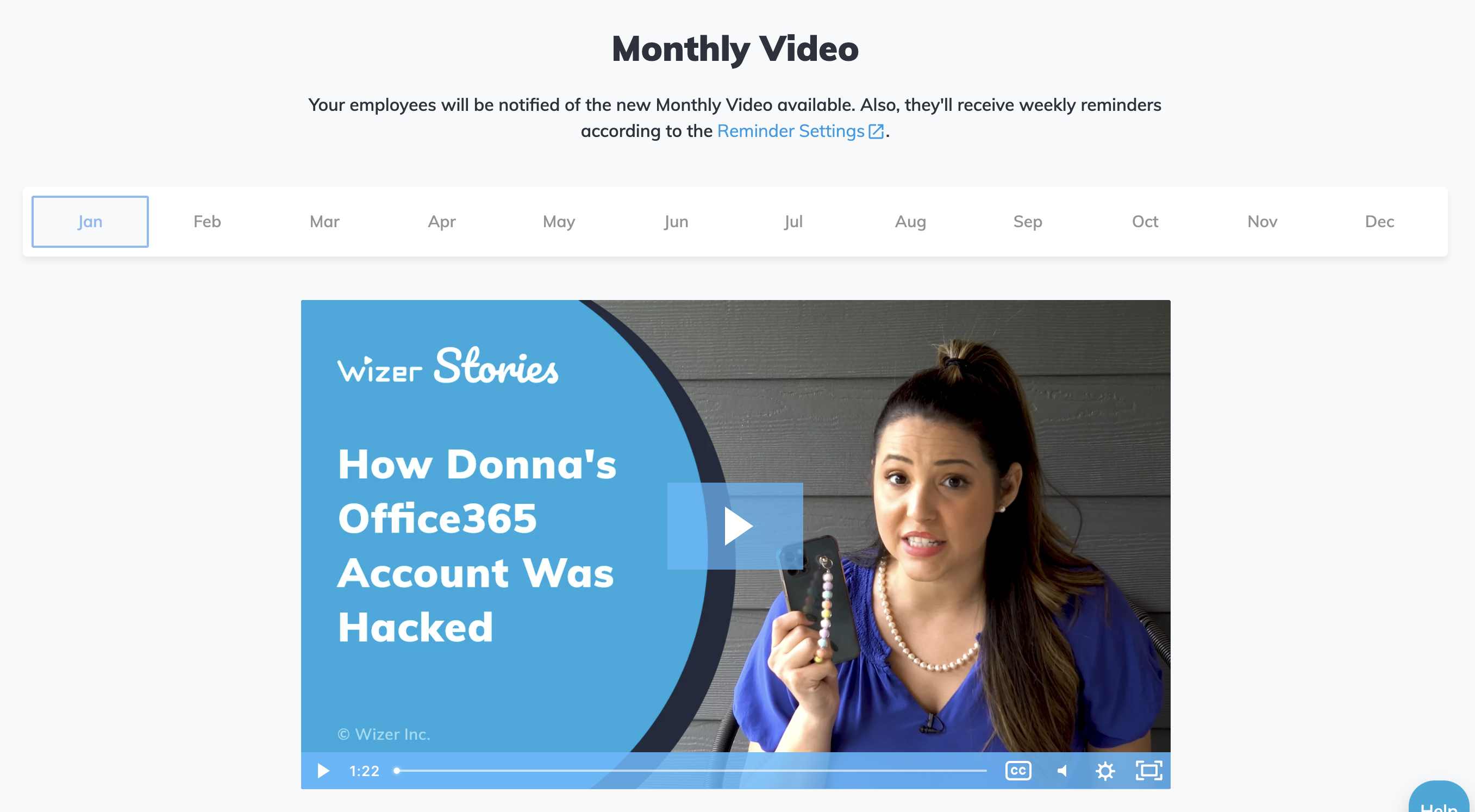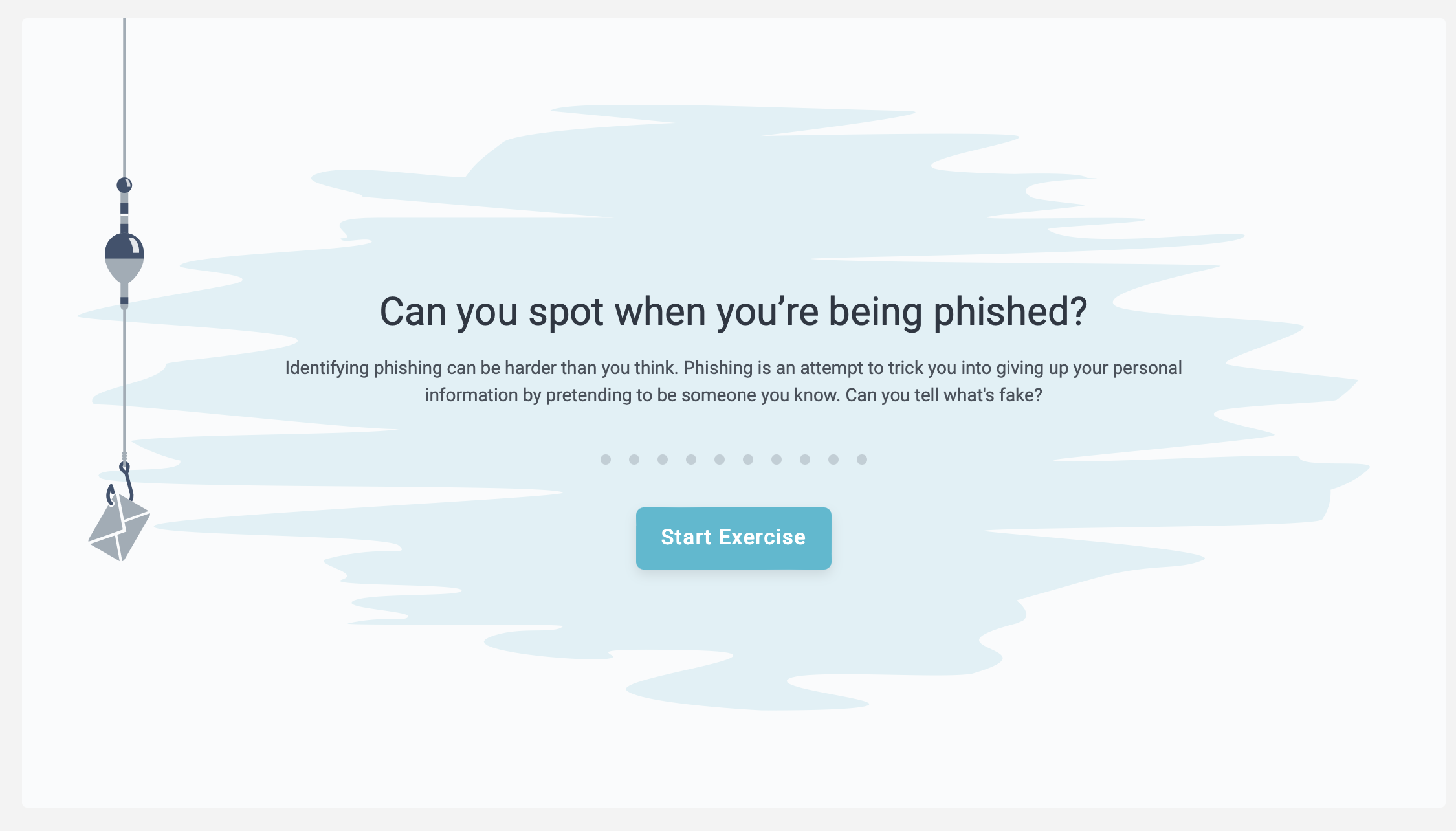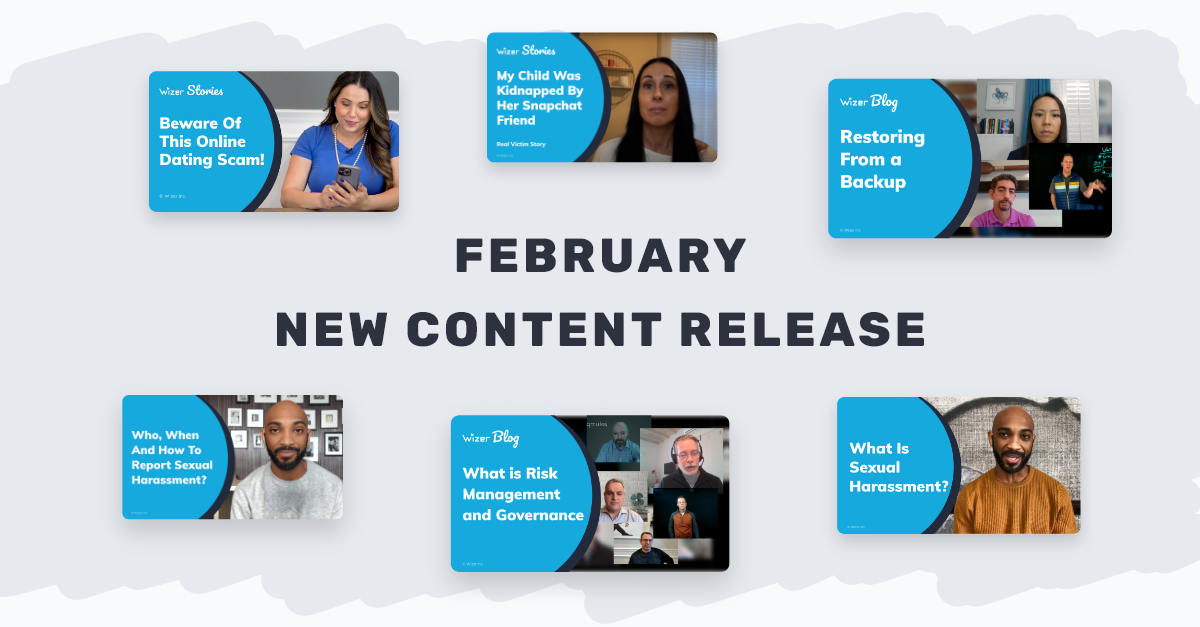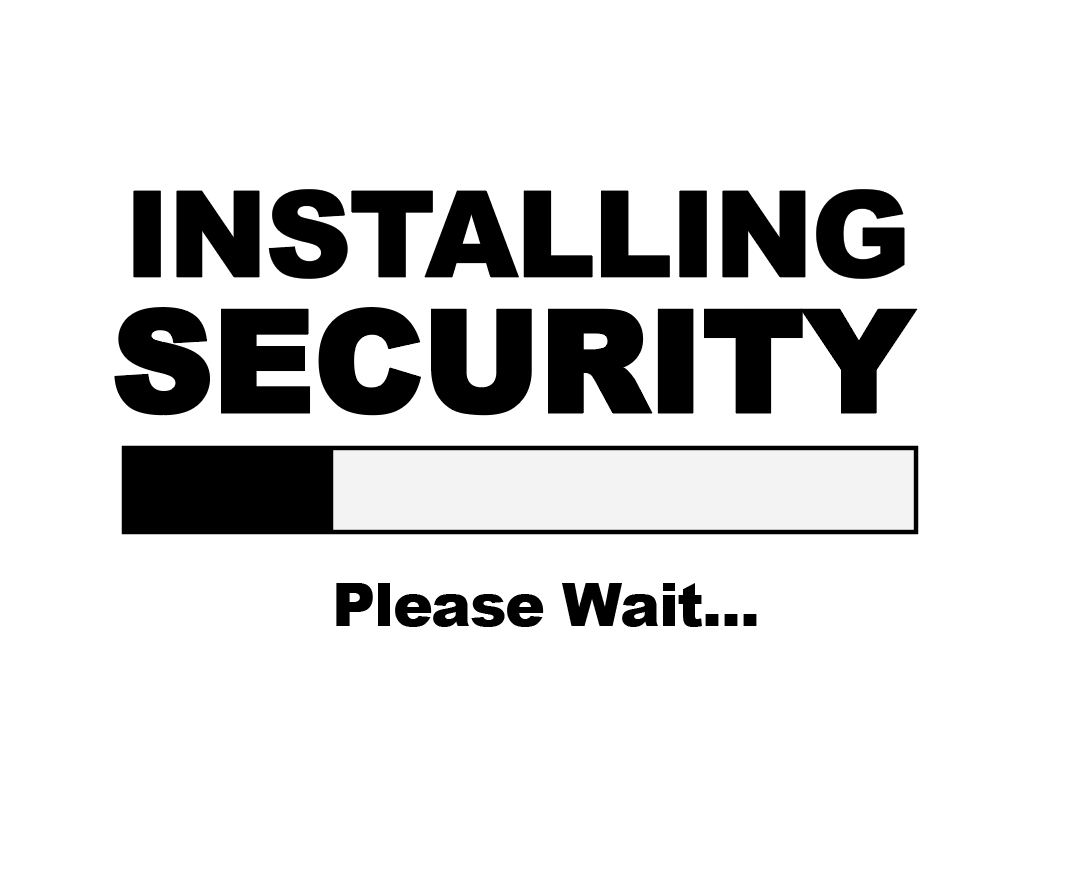How To Set Up Your Security Awareness Calendar For 2023
To get you started quickly, we created an annual training calendar for you. We have laid out the entire year, from January to December, with specific training topics and videos that will motivate your team to become security masters at work and home. This calendar also includes when to play games and when to run phishing simulations. If you need to comply with SOC2, CMMC it's better to start with the Boost version of the Annual Training 2022.
Schedule - FIRST MONTH
If you are using the the Free Version of Wizer then begin with the BASIC Annual Training 2022. It covers all the basics including:
- Phishing, Spear Phishing and Social Engineering
- Multi Factor Authentication
- Strong Password
- Ransomware
- Shadow IT
- Public Wifi
- Wire Fraud
- Quiz
- And more
If you are using the Wizer Boost (The paid version) begin with the COMPLETE Annual Training 2022. It covers all the BASICS plus:
- Wire Fraud (advanced)
- Mobile Security
- Privacy and PII
- External Devices
- Physical Security
- Real Life Stories
- And 2 Extra Quizzes
Schedule - EVERY MONTH
Once the basics are covered, activate the monthly “Hot Topic” video. These real life stories usually go beyond the workplace and are good for the entire family. It's something that people can take home and share with their families. It will keep them engaged throughout the year and help build a security culture.

Schedule - second MONTH
For the second month, launch the phishing game. It's an phishing exercise that will allow your team to work on their phish spotting skills.

Schedule - every 3 MONTHs
Once a quarter, add in focused training, like Smishing, Work From Home, or other specialized training. These training campaigns are usually short - no more than 5 videos (1-minute each).

Schedule - every 2-3 MONTHs
Finally, test your team by running a phishing simulation 3 to 6 times per year, you will find out if they can spot and report real-life phishing emails.

Gabriel Friedlander
Gabriel Friedlander is the Founder & CEO of Wizer, whose mission is to make basic security awareness a basic life skill for everyone. Wizer has been rapidly growing since being founded in 2019, and now serves 20K+ organizations across 50 countries. Before founding Wizer, Gabriel was the co-founder of ObserveIT (acquired by Proofpoint). With over a decade of experience studying human behavior, he is a prolific content creator on social media, focusing on online safety to elevate public understanding of digital risks. His engaging 1-minute videos have captured the attention of millions worldwide, going viral for their impactful messages.


